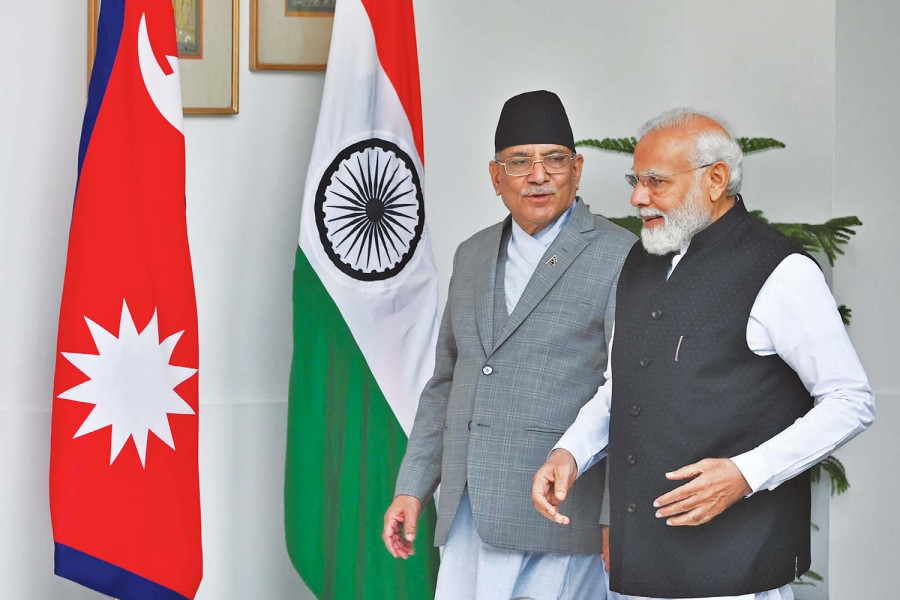Interviews
PM Modi has offered to settle boundary dispute through talks: PM Dahal
“For the first time, an Indian prime minister has announced in a press conference that the border issue will be resolved through dialogue,” says Dahal.
Prime Minister Pushpa Kamal Dahal is currently in India on a four-day trip. Kantipur Editor-in-Chief Umesh Chauhan caught up with the prime minister in Indore, Madhya Pradesh, on Friday night to discuss his visit. Excerpts.
The discussion of border disputes during bilateral talks has piqued people’s curiosity. During the interaction with journalists earlier today, you said we may go the route of India and Bangladesh when it comes to resolving border disputes. What did you mean?
I meant to say that could be one option. I didn't mean that is the only option. [At the joint press conference] Prime Minister Narendra Modi spoke about Kalapani and the border dispute before me. This is the first time that he did so as a prime minister and even committed to resolve the border dispute. He has said that we will move ahead in an environment of trust. This is very important. That was not the case in the past. For the first time, an Indian prime minister has announced in a press conference that the border issue will be resolved through dialogue. This is good news for Nepalis. This can be seen as a new dimension in Nepal-India relations.
Is the idea of land swap involving Kalapani with a corridor to Bangladesh something that is entirely conceptual or has there also been some diplomatic discussions on it?
Again, there can be multiple options. Some Nepali experts say we can give Kalapani to India in return for a passage to Bangladesh. The other option, in case it is proven that they have taken our land, would be to give them that area and take some land in some other place in return. We haven’t gone into the nitty-gritty of these discussions. Modiji said, “If we can resolve such an old land dispute with Bangladesh, why can’t we do so with Nepal?” He said we can and we must do it.
Modiji said that the agreement with Bangladesh was made possible as the issue was not politicised, and that such an issue becomes complicated if it is politicised. I found this quite touching. If we start arguing who is right and who is wrong on this issue, it becomes difficult to resolve. Both the governments will be under pressure. This is why we should think of different options, involving Track II and bilateral mechanisms to take negotiations to a particular point. Otherwise, unless the issue of Kalapani, Lipulekh and Limpiyadhura is resolved, Nepal-India relations will never be good. As soon as this issue arises, there will be controversy.




 18.12°C Kathmandu
18.12°C Kathmandu



.jpg&w=200&height=120)







